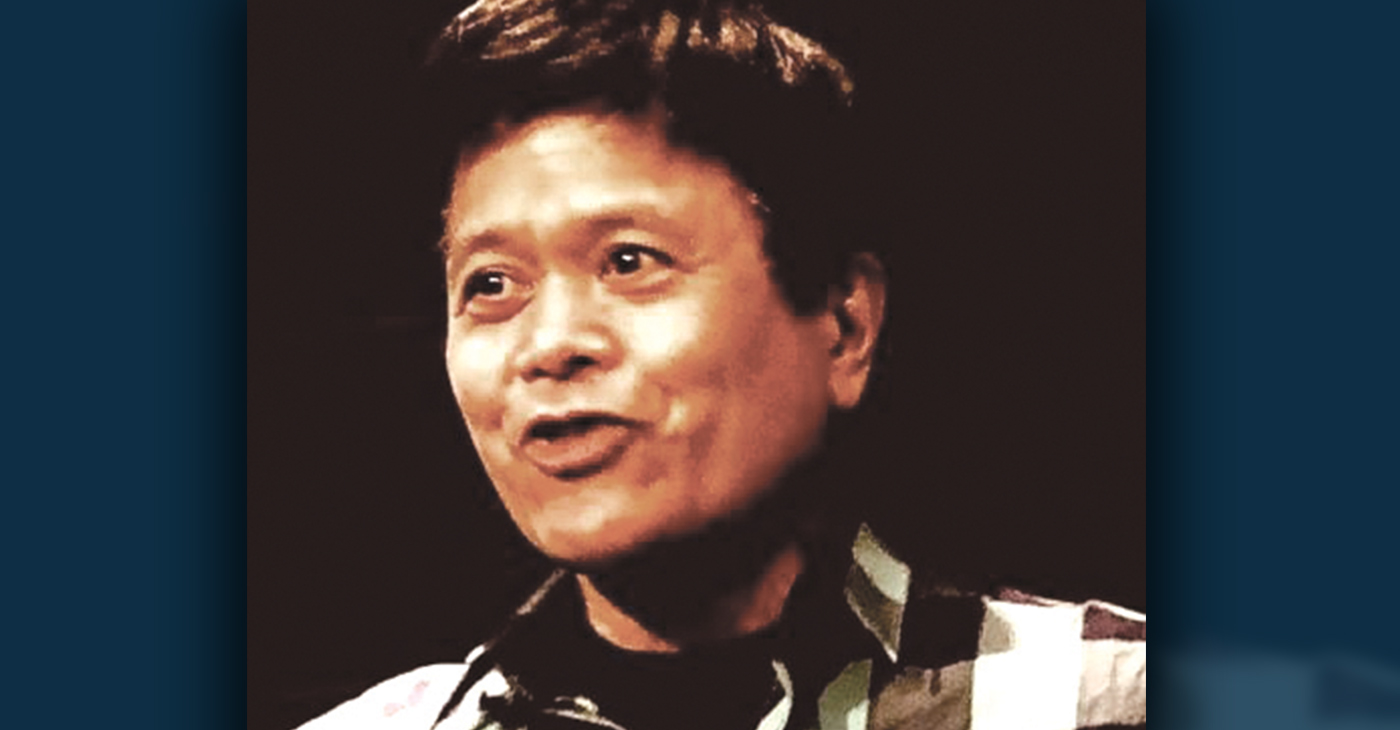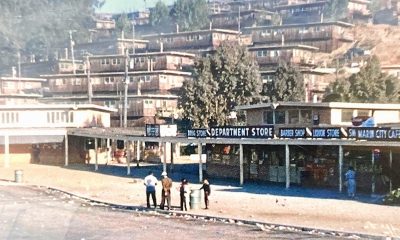Activism
COMMENTARY: Based on My Reading of Ethnic History, Jan. 6 ‘Insurrectionists’ Unworthy of Name
Maybe if all those subpoenaed comply, Congress will get to the bottom of what happened that day — that some Republicans loyal to an ex-president who lost the November election were considering a coup. Now there’s a word that doesn’t belong in American democracy.

By Emil Guillermo
It’s been a year since the Jan. 6th Capitol Riots of 2021. Please don’t call the perps “insurrectionists.”
Call them what they are.
Lawless, unprincipled rioters. Right-wing political looters. Deluded Trump supporters.
Insurrectionists take down authoritarians like Trump in the name of democracy. They don’t put authoritarians in. They usually take them out. Insurrectionists are serious people, not armed lunatics lured by the smell of burnt gunpowder and the sound of broken glass.
But the Jan. 6, 2021 rioters were anti-democracy which disqualifies them from the “I” word.
So, leave the term “insurrectionist” for the history most people don’t even know. It’s the Filipinos, who, after the Spanish American War, stood up to the American imperialists and established a new Philippine republic, said to be the first democracy in Asia. It was so significant that the revolt became known as the Philippine American War.
By that standard, the Jan. 6th rioters just don’t measure up.
Maybe if all those subpoenaed comply, Congress will get to the bottom of what happened that day — that some Republicans loyal to an ex-president who lost the November election were considering a coup. Now there’s a word that doesn’t belong in American democracy.
And to appreciate it all, it was handy to know a little Filipino American ethnic history.
New Laws for Ethnic History in California
You may have known it if you were taught much about the Philippine American War in high school. Or maybe community college. As of Jan. 1, the framework is in place to make it required in community colleges by 2024, taught at high schools by 2025, and a graduation requirement by 2029.
That still gives seven years for ignorance to fester, but that’s the law.
It’s all too late for one former Skyline grad, Eleanor Wikstrom, who two years ago went east to Harvard.
There she discovered her Filipino-ness. She wanted to know why her mother’s language, Tagalog, wasn’t taught there. There’s no good answer.
Good to see things haven’t changed much from when I was there nearly 50 years ago.
This year, Wikstrom wanted to learn more about what happened after the Philippine American War when the U.S. colonial period began. Simply, they re-educated the Filipinos, seen as illiterate savages or as infantile and unfit for self-rule. So, they taught them all English. The person in charge of education was Fred W. Atkinson. A Harvard man.
That was an emotional moment for Wikstrom, who, like many Filipino Americans, understand colonialism is in our historical DNA. But then to discover it in the library how Harvard had a role in the “racialized subjugation” took an emotional toll.
In an essay for the Harvard Crimson she wrote, “Of the jagged wound that is U.S. colonization in the Philippines, a gun is smoking in Harvard’s hands.”
She also realized it was a history buried so deep in the archives that it’s a history no one really wants anyone to know or see.
But as I mentioned to her in my podcast conversation (“Emil Amok’s Takeout, Show 104 on Spotify, Apple, etc) once you see it, you can’t “unsee it.”
Of course, who knows if this bit of American Filipino history will be part of the state’s new curriculum. But it does show the value of new laws requiring some exposure to ethnic history.
This isn’t critical race theory, mind you. It’s just history — the things that are hidden in the past but can begin to explain the present.
History can do that. But only if we take the time and responsibility to learn from it.
Emil Guillermo is a veteran Bay Area journalist and commentator. See more at www.amok.com Twitter @emilamok
Activism
Oakland Post: Week of April 24 – 30, 2024
The printed Weekly Edition of the Oakland Post: Week of April 24 – 30, 2024

To enlarge your view of this issue, use the slider, magnifying glass icon or full page icon in the lower right corner of the browser window. ![]()
Activism
Oakland Post: Week of April 17 – 23, 2024
The printed Weekly Edition of the Oakland Post: Week of April 17 – 23, 2024

To enlarge your view of this issue, use the slider, magnifying glass icon or full page icon in the lower right corner of the browser window. ![]()
Activism
Oakland Schools Honor Fred Korematsu Day of Civil Liberties
Every Jan. 30, OUSD commemorates the legacy of Fred Korematsu, an Oakland native, a Castlemont High School graduate, and a national symbol of resistance, resilience, and justice. His defiant stand against racial injustice and his unwavering commitment to civil rights continue to inspire the local community and the nation. Tuesday was “Fred Korematsu Day of Civil Liberties and the Constitution” in the state of California and a growing number of states across the country.

By Post Staff
Every Jan. 30, OUSD commemorates the legacy of Fred Korematsu, an Oakland native, a Castlemont High School graduate, and a national symbol of resistance, resilience, and justice.
His defiant stand against racial injustice and his unwavering commitment to civil rights continue to inspire the local community and the nation. Tuesday was “Fred Korematsu Day of Civil Liberties and the Constitution” in the state of California and a growing number of states across the country.
One OUSD school is named in his honor: Fred T. Korematsu Discovery Academy (KDA) elementary in East Oakland.
Several years ago, founding KDA Principal Charles Wilson, in a video interview with anti-hate organization “Not In Our Town,” said, “We chose the name Fred Korematsu because we really felt like the attributes that he showed in his work are things that the children need to learn … that common people can stand up and make differences in a large number of people’s lives.”
Fred Korematsu was born in Oakland on Jan. 30, 1919. His parents ran a floral nursery business, and his upbringing in Oakland shaped his worldview. His belief in the importance of standing up for your rights and the rights of others, regardless of race or background, was the foundation for his activism against racial prejudice and for the rights of Japanese Americans during World War II.
At the start of the war, Korematsu was turned away from enlisting in the National Guard and the Coast Guard because of his race. He trained as a welder, working at the docks in Oakland, but was fired after the bombing of Pearl Harbor in 1941. Fear and prejudice led to federal Executive Order 9066, which forced more than 120,000 Japanese Americans out of their homes and neighborhoods and into remote internment camps.
The 23-year-old Korematsu resisted the order. He underwent cosmetic surgery and assumed a false identity, choosing freedom over unjust imprisonment. His later arrest and conviction sparked a legal battle that would challenge the foundation of civil liberties in America.
Korematsu’s fight culminated in the Supreme Court’s initial ruling against him in 1944. He spent years in a Utah internment camp with his family, followed by time living in Salt Lake City where he was dogged by racism.
In 1976, President Gerald Ford overturned Executive Order 9066. Seven years later, the 9th Circuit Court of Appeals in San Francisco vacated Korematsu’s conviction. He said in court, “I would like to see the government admit that they were wrong and do something about it so this will never happen again to any American citizen of any race, creed, or color.”
Korematsu’s dedication and determination established him as a national icon of civil rights and social justice. He advocated for justice with Rosa Parks. In 1998, President Bill Clinton gave him the Presidential Medal of Freedom saying, “In the long history of our country’s constant search for justice, some names of ordinary citizens stand for millions of souls … To that distinguished list, today we add the name of Fred Korematsu.”
After Sept. 11, 2001, Korematsu spoke out against hatred and discrimination, saying what happened to Japanese Americans should not happen to people of Middle Eastern descent.
Korematsu’s roots in Oakland and his education in OUSD are a source of great pride for the city, according to the school district. His most famous quote, which is on the Korematsu elementary school mural, is as relevant now as ever, “If you have the feeling that something is wrong, don’t be afraid to speak up.”
-

 Community2 weeks ago
Community2 weeks agoFinancial Assistance Bill for Descendants of Enslaved Persons to Help Them Purchase, Own, or Maintain a Home
-

 Activism3 weeks ago
Activism3 weeks agoOakland Post: Week of April 3 – 6, 2024
-

 Business2 weeks ago
Business2 weeks agoV.P. Kamala Harris: Americans With Criminal Records Will Soon Be Eligible for SBA Loans
-

 Community2 weeks ago
Community2 weeks agoAG Bonta Says Oakland School Leaders Should Comply with State Laws to Avoid ‘Disparate Harm’ When Closing or Merging Schools
-

 Activism2 weeks ago
Activism2 weeks agoOakland Post: Week of April 10 – 16, 2024
-

 Community1 week ago
Community1 week agoOakland WNBA Player to be Inducted Into Hall of Fame
-

 Community1 week ago
Community1 week agoRichmond Nonprofit Helps Ex-Felons Get Back on Their Feet
-

 City Government2 weeks ago
City Government2 weeks agoLAO Releases Report on Racial and Ethnic Disparities in California Child Welfare System

























































